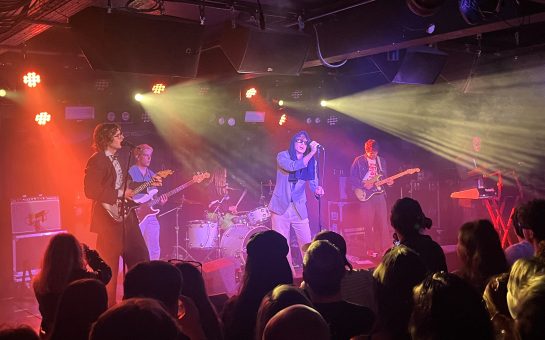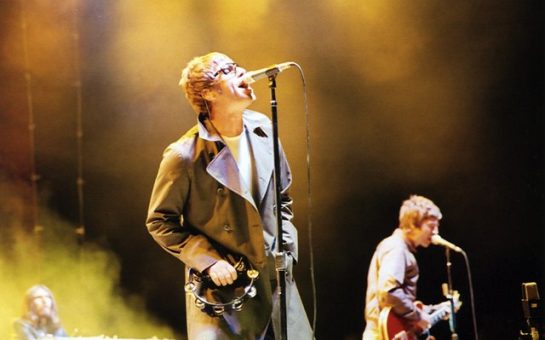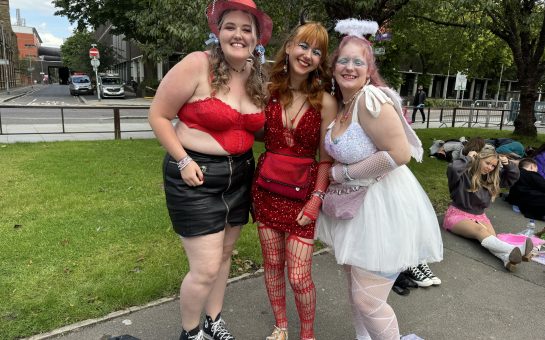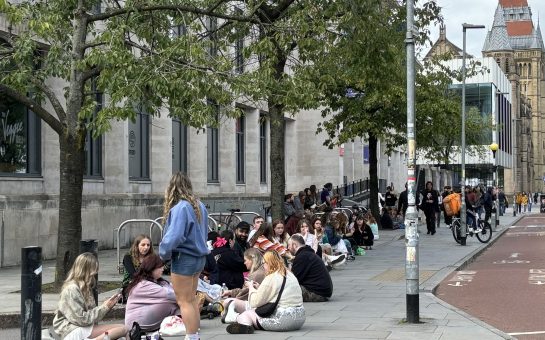Much has been made recently of the terrible impact of coronavirus on the UK economy.
The outlook seems to grow gloomier by the day whenever you turn on the TV.
People right now are lamenting the loss of jobs and livelihoods, with the newest set of measures put into place setting fears aflame that some industries will never recover.
But what of the industry that’s gotten us through lockdown?
The one we all repeatedly turned to for hours of escapism during long stretches of miserable days locked indoors with no end in sight; the music industry.
Few industries have been hit harder by coronavirus than the music industry.
Like every other, it’s adapted in ways no one saw coming just a year ago.
Artists are still finding ways to keep in touch with fans via Instagram live feeds and Versus battles.
But this doesn’t change the fact that music and the arts as a whole are in a crisis.
And it’s not just musicians that are affected but also sound and lighting engineers, producers, venue managers, the list goes on.
The question on a lot of people’s minds what is Oliver Dowden, the Culture Secretary going to do about this?
A glance at the statistics paints a bleak picture.
Recent polls suggest 34% of musicians are leaving their profession, with a further 37% unsure about their future.
It might be natural to think that music streaming on services like Spotify have gone up during lockdown, but that’s not the case.
People haven’t been doing the things they usually do when they listen to music, like driving to work or working out in the gym.
What’s more is that places that do some of the most streaming are clubs, bars, and restaurants, which have been closed.
Thanks to this, Spotify has seen a 8% drop in revenue.
That may not sound like much, but it has taken a toll on artists.
David Nicholls, a guitarist for Manchester-based blues-rock band Vonum, said: “It’s been very tough for some artists.
“Working towards a gig gives a sense of purpose, and without that makes us feel like we have not nothing to work towards.
“But we can see this time positively as preparation for when lockdown ends, prepare all day because when the first gig comes round, it will be amazing.
“We are all in the same boat, so we have got to hang tight so practice. If struggling, reach out to other musicians.”
Earlier in the summer, the Government issued a £1.57 billion rescue package, which has helped theatres and cultural heritage sites stay afloat but left many up-and-coming musicians destitute.
The furlough scheme seems to have helped, but the Independent still estimates that by 2021, live music will have lost 170,000 employees.
It would be very easy to demand the Government to do more to help an industry that some feel it undervalues, and pretty soon there might not be enough money to go round.
Some are feeling optimistic that there will be a significant bounce back once restrictions are lifted.
Flynn Greenwood, front-of-house supervisor at Manchester Academy said: “It has hit the smaller venues hardest, and they will take longest to get back on their feet, and it will be harder for them to do things socially distanced.
“When we announce gigs for next year, people are excited to see new bands.
“One of the issues is that smaller artists play small intimate gigs, so it will be harder for them to get the crowd sizes they need to make money.”
Every generation faces new challenges that the previous could not possibly imagine.
It’s unlikely if any mohawked, leather-clad punk rockers in the 1980s foresaw the advent of Instagram live feeds that a lot of musicians are using now.
Things like this are great because they help get rid of the barrier between artist and audience and are taking advantage of our ability to communicate across long distances.
They also bring a sense of intimacy that concerts lack, as we get to see artists, in the comfort of their homes, without a thousand lights on them and more VFX than Avatar.
Also, you get to see all those charming little mistakes you might miss otherwise, and the question and answer format help reveal the real person behind the lights and choreography.
Some musicians were already doing this before the pandemic, notably singer-songwriter John Mayer.
But, only as a supplement to their album sales and concert events because it doesn’t bring in nearly as much money as live performances.
In the age of streaming, artists have relied on these live performances as a major source of income, even the big ones.
Nonetheless, big-name artists like John Mayer will still find it easier to operate on social media, but less established musicians who do not quite have the same following might be a bit stuck.
David identified this struggle because not every musician has a vast fanbase already waiting there on Instagram, and instead has to perform live to gain new fans, often as warm-up acts for other artists.
I feel that coronavirus has been a unique catalyst for musical innovation.
Artists, like the rest of the world, have been forced to introspect, spending much time practicing and creating new music without a deadline in sight.
That is unprecedented in musical history.
In a sense, artists have had to rediscover that invisible inspiration that compelled humans to come up with music in the first place.
So, what kind of music will we see when all of it finally gets released?
It may feel as if their careers were forcibly put on pause, but this could be an amazing chance for musicians to reach for new heights, like a coiled spring.
But, as David said, a lot of artists may have used this time to write more sad, mellow, and sombre tunes.
This begs the question of whether this is what people want.
Perhaps, after a deadly pandemic and with the economic hardship on the way, we will need a bit of escapism.
It’s hard to say, but one thing’s for sure, and that is that that artists like Billie Eilish have proven there is a marker for darker, edgier, and emotionally raw music.
When the pandemic is over, consumers are going to be inundated with the reopening of an entire economy.
That means businesses, restaurants, and new film releases for a start.
As people suddenly have a lot more to spend money on and probably less to spend with, the music world might struggle to get the attention it needs.
And besides, when artists eventually do continue with live concerts, incorporating social distancing, they could start giving out special virtual tickets so people can attend via virtual reality.
Image by Free-Photos from Pixabay



